Digital Poster
Structural Connectivity
ISMRM & ISMRT Annual Meeting & Exhibition • 10-15 May 2025 • Honolulu, Hawai'i

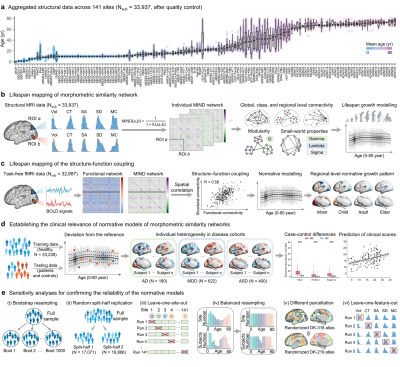 |
Computer Number: 97
1468. Mapping
the Morphometric Similarity Network Across the Human Lifespan
Using Normative Models in 33,937 Participants

X. Liang, L. Sun, M. Xia, Q. Li, T. Zhao, X. Liao, G.
Gong, Z. Cui, D. Duan, C. Pang, Y. He
Beijing Normal University, Beijing, China
Impact: Our results reveal the lifespan evolution of the
morphology-based structural network and provide a normative
reference for assessing individual variations in
development, aging, and neuropsychiatric disorders.
|
|
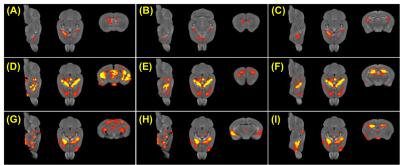 |
Computer Number: 98
1469. Mapping
Glutamate Networks in the Mouse Brain Using CEST MRI
Y. Liu, M. Uberti, A. Bhattarai, C. Samaraweera, A. Bade, D.
Peng
University of Nebraska Medical Center, Omaha, United States
Impact: This study shifts how glutamate's role in the
brain is investigated, enabling targeted, non-invasive
imaging of its networks. By establishing a method to map
glutamate connectivity, it opens new avenues for studying
region-specific alterations in neurological disorders.
|
|
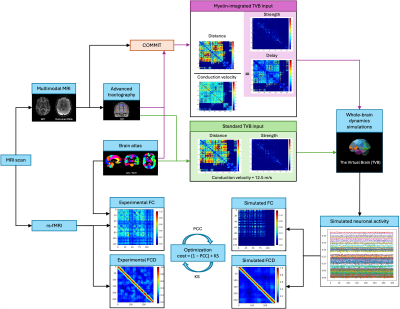 |
Computer Number: 99
1470. Integrating
subject-specific conduction velocity into virtual brain models:
advancing Brain Digital Twin technologies
E. Lupi, F. Palesi, A. Monteverdi, M. Gaviraghi, C. McNabb,
P. Luque Laguna, E. Messaritaki, A. Daducci, M. Palombo, M.
Cercignani, E. D’Angelo, C. Gandini Wheeler-Kingshott
University of Pavia, Pavia, Italy
Impact: Our study demonstrates that simulating brain
activity with The Virtual Brain model improves when
integrating subject-specific neural conduction values,
derived from MRI-based measures of myelin content and axonal
diameter. This approach advances the development of Brain
Digital Twin technologies.
|
|
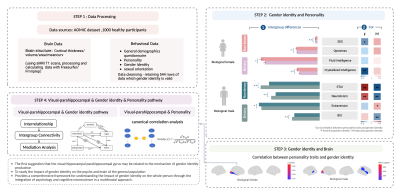 |
Computer Number: 100
1471. Explore
the Heterogeneity in Gender Identity across Brain Morphology and
Personality Traits
H. Yip, Y. He, J. Qin, Y. Wu
Nanjing University of Science and Technology, Nanjing, China
Impact: This study enhances our understanding of
gender-specific neural mechanisms, potentially guiding
gender-sensitive approaches in mental health assessments and
interventions.
|
|
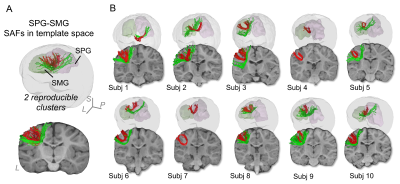 |
Computer Number: 101
1472. A
one-stop tractography solution for tracing short-range
association fibers in early developmental brain
R. Lin, R. Li, M. Ouyang, H. Huang
Children's Hospital of Philadelphia, Philadelphia, United States
Impact: The
cutting-edge short-range tractography protocol offers
important insights into the superficial WM maturation in the
early developmental brain. The one-stop cross-platform tool
can be used for broader neuroscientific and clinical
discoveries on brain development.
|
|
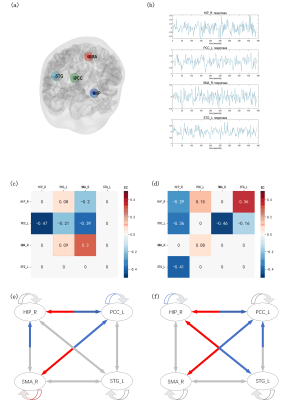 |
Computer Number: 102
1473. Altered
effective connectivity in LGI-1 antibody encephalitis: a
spectral dynamic causal modeling study
Z. Liu, W. Xu, D. Zhang, J. Xin, J. Qiao, A. Li
Qilu Hospital of Shandong University, Jinan, China
Impact:
This study enhances understanding of brain connectivity in anti-LGI1 encephalitis, potentially leading to new diagnostic biomarkers and targeted therapies. Improved insights into causal relationships may substantially enhance patient management and treatment outcomes in autoimmune encephalitis. |
|
|
Computer Number:
1474. WITHDRAWN |
||
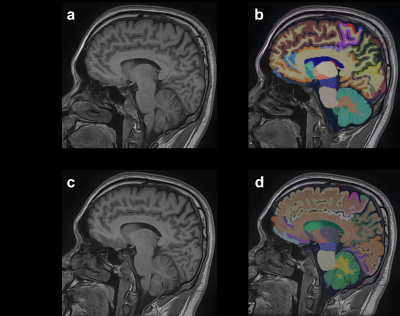 |
Computer Number: 103
1475. Impact
of Posture on Brain Volume Assessed with a Rotating 1.5T
Cryogen-Free MRI in Healthy Individuals
S. Ke, Y. Wang, J. Zhang, J. Zeng, S. Niu, C. Yao, J. Zheng,
T. Meersmann, C. Wang
University of Nottingham Ningbo, Ningbo, China
Impact: These findings on posture-related brain volume
stability may inform future research on the clinical
implications of postural effects, enhancing our
understanding of brain structure integrity across different
positions.
|
|
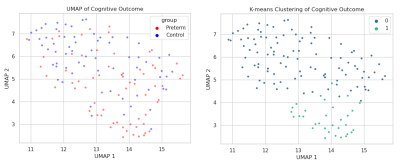 |
Computer Number: 104
1476. Alternative
neurodevelopmental pathways in the structural connectome of
adults born preterm
M. Li, W. Lapidaire, C. Clark, J. Clayden
University College London, London , United Kingdom
Impact: This study suggests compensatory mechanisms
leading to a divergent state of structural connectome i.e. 2
or more optimal states of network topologies achieving the
same cognitive ability in adults born preterm.
|
|
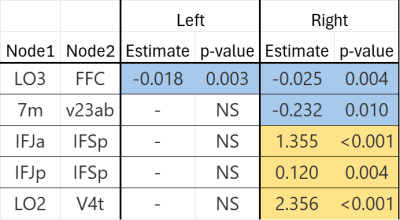 |
Computer Number: 105
1477. Changes
in structural connectivity of the facial perception network in
long-term survivors of pediatric medulloblastoma.
M. Muturi, J. Glass, R. Raja, T. Patni, Y. Li, T. Brinkman,
W. Reddick
St. Jude Children's Research Hospital, Memphis, United States
Impact: Therapy
for MB has detrimental impacts on connectivity of brain
structures critical to facial perception. Identification of
the most impacted circuits that lead to decreased
neurocognitive performance will facilitate the design of
future interventions.
|
|
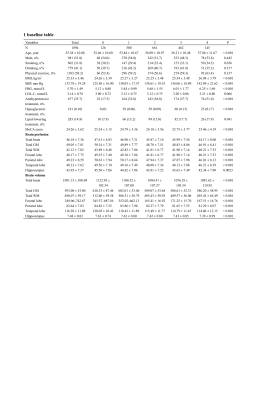 |
Computer Number: 106
1478. Variability
of Multiple Metabolic Indicators: Associations with Cerebral
Perfusion, Brain Structure, and Cognition in the General
Population
X. Li, X. Li
Beijing Friendship Hospital, Capital Medical University, Beijing, China, beijing, China
Impact: These findings underscore the role of metabolic
variability in cognitive decline and brain health,
supporting early preventive strategies relevant to
Alzheimer’s disease prevention
|
|
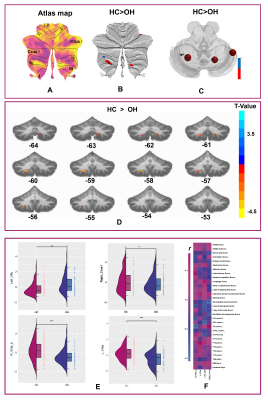 |
Computer Number: 107
1479. Cerebellar
Structural Alterations and The Associations with Cognitive and
Emotional Impairments in Adult-onset Hypothyroidism
L. Zhao, J. Cao, J. Tian, G. Huang, Q. Zou
Gansu Provincial Hospital, Lanzhou, China
Impact: This research provides insights into the
cerebellum's role in hypothyroidism, emphasizing the
importance of thyroid hormones for cognitive and emotional
health.
|
|
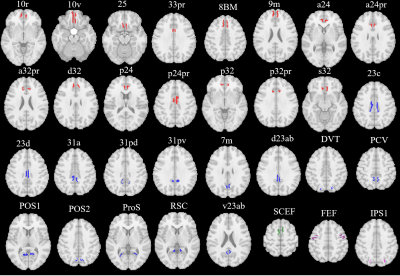 |
Computer Number: 108
1480. Structural
Connectivity Alterations in the Attention Network of Childhood
Acute Lymphoblastic Leukemia Survivors
R. Raja, R. Song, J. Glass, T. Patni, Y. Li, W. Reddick
St. Jude Children's Research Hospital, Memphis, United States
Impact: Therapy for acute lymphoblastic leukemia is
associated with an increased risk of neurocognitive issues
in survivors. This study’s findings offer evidence of both
compromised and compensatory changes in attention network,
which may help illuminate the neural basis of attention
deficits.
|
|
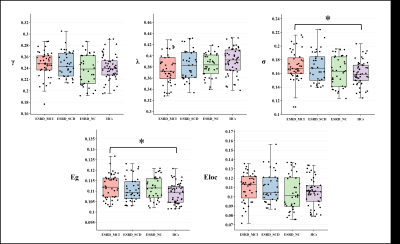 |
Computer Number: 109
1481. Central
Executive Network Alterations in End-Stage Renal Disease
Patients with Cognitive Decline
W. Li, Y. Cheng, D. Wang, T. Liu, H. Shi
The Third Affiliated Hospital of Nanjing Medical University, Changzhou Second People's Hospital, Changzhou, China
Impact: This study uncovered the neuropathological
mechanism behind SCD in patients with ESRD, potentially
facilitating ultra-early diagnosis of CI in these patients
and guiding early clinical intervention.
|
|
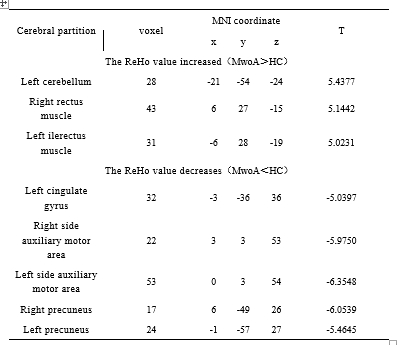 |
Computer Number: 110
1482. A
resting state functional MRI study in migraineurs without aura
in middle and high altitude areas
Q. Zhang, J. Yao, G. Yang, G. Yang, X. Yang, G. Han
Qinghai Provincial People’s Hospital, xining, China
Impact: Cerebral functional changes in MwoA patients
from mid-to-high altitude areas suggest that rs-fMRI is a
promising method for studying MwoA, and this study addresses
the international research gap in this field.
|
|
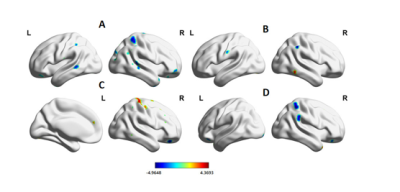 |
Computer Number: 111
1483. Altered
maternal brain structural covariance networks in the postpartum
period
y. Gao, w. Su, x. Li, j. Xin, x. Du, k. Zhang
School of Psychology, Shandong Normal University, jinan, China
Impact: We used structural covariance network (SCN)
analysis to demonstrate that brain structural placity in
postpartum women during raising infants, providing new ideas
and directions for studying the neural mechanisms of
maternal behavior.
|
The International Society for Magnetic Resonance in Medicine is accredited by the Accreditation Council for Continuing Medical Education to provide continuing medical education for physicians.